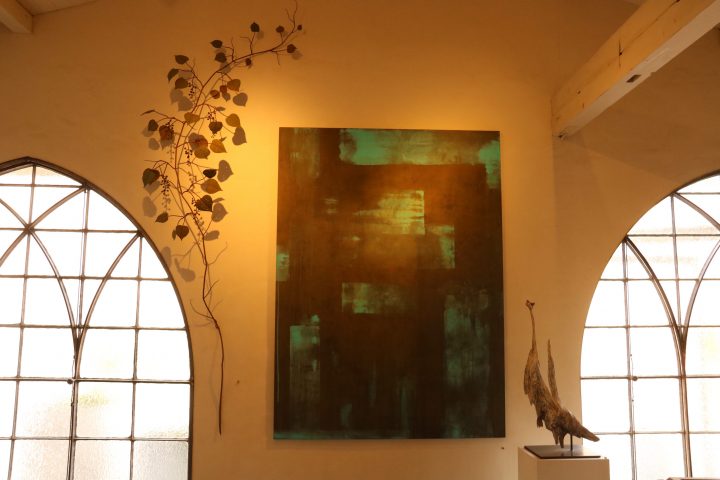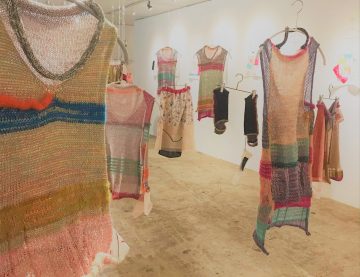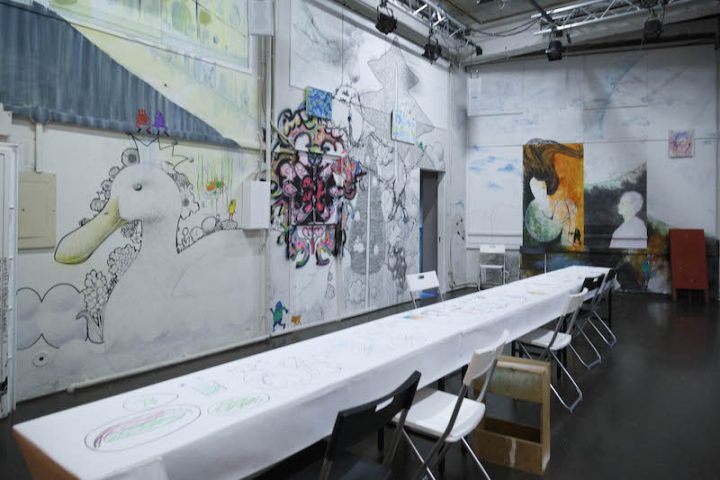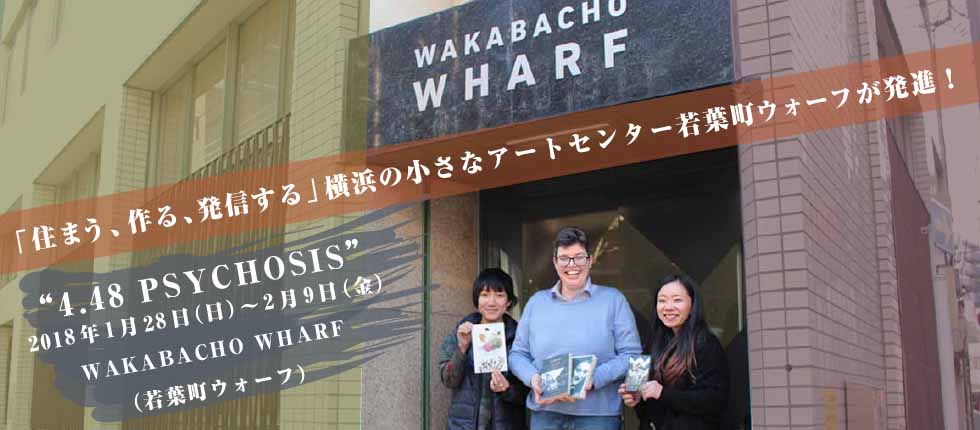
An artist-in-residence facility with a theater, practice studio, and accommodation
-What kind of facility is Wakabacho Wharf?
(Kawaguchi)
The facility has a theater with a capacity of 44 people on the first floor, a studio with mirrors and a practice bar on the second floor, and accommodation for 20 beds on the third floor.
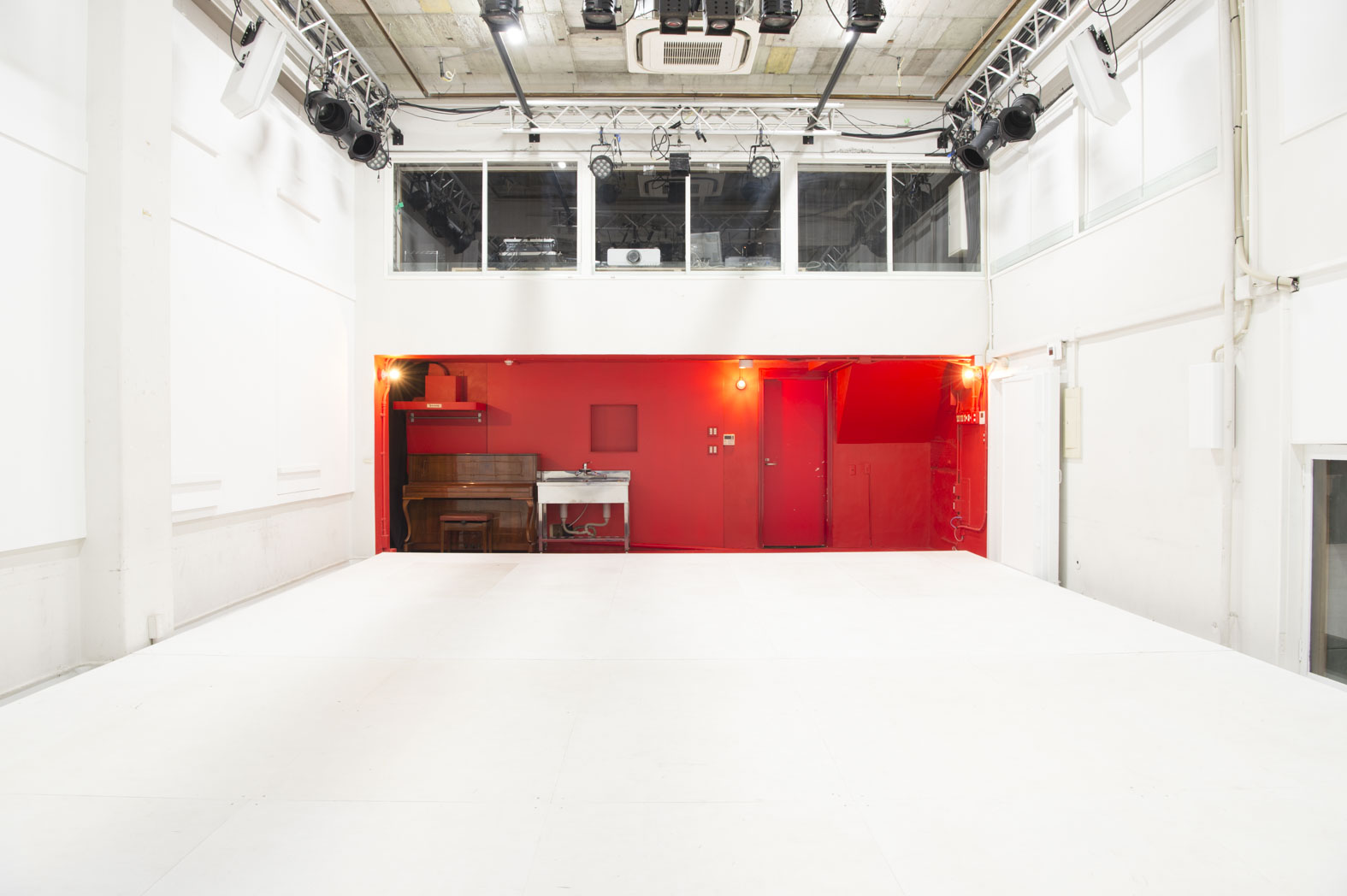
The theater on the first floor features adjustable seating and a stage, and a ceiling that is over 4 meters high.
(Kawaguchi)
Wakabacho Wharf aims to be a "neighborhood arts center." It is a place where you can "create," "stay," and "live." You can live, create, and present. You can also go to the theater, get involved in productions, and get involved in all sorts of ways. Wharf means "pier," and we envision it as a place where activities and exchanges will expand.
I believe that in the future there will be an increase in Artist-in-Residence (AIR) facilities both in Japan and abroad, where artists stay in a local area, gain inspiration from life and interactions there, and use that inspiration to create works, and I would like to make this a place that actively collaborates with other facilities and regions and builds connections, such as by having the works created here then be performed somewhere.
Wakabacho is a very attractive town. People from many different countries live here, and one of its characteristics is that it is particularly welcoming to foreign visitors.
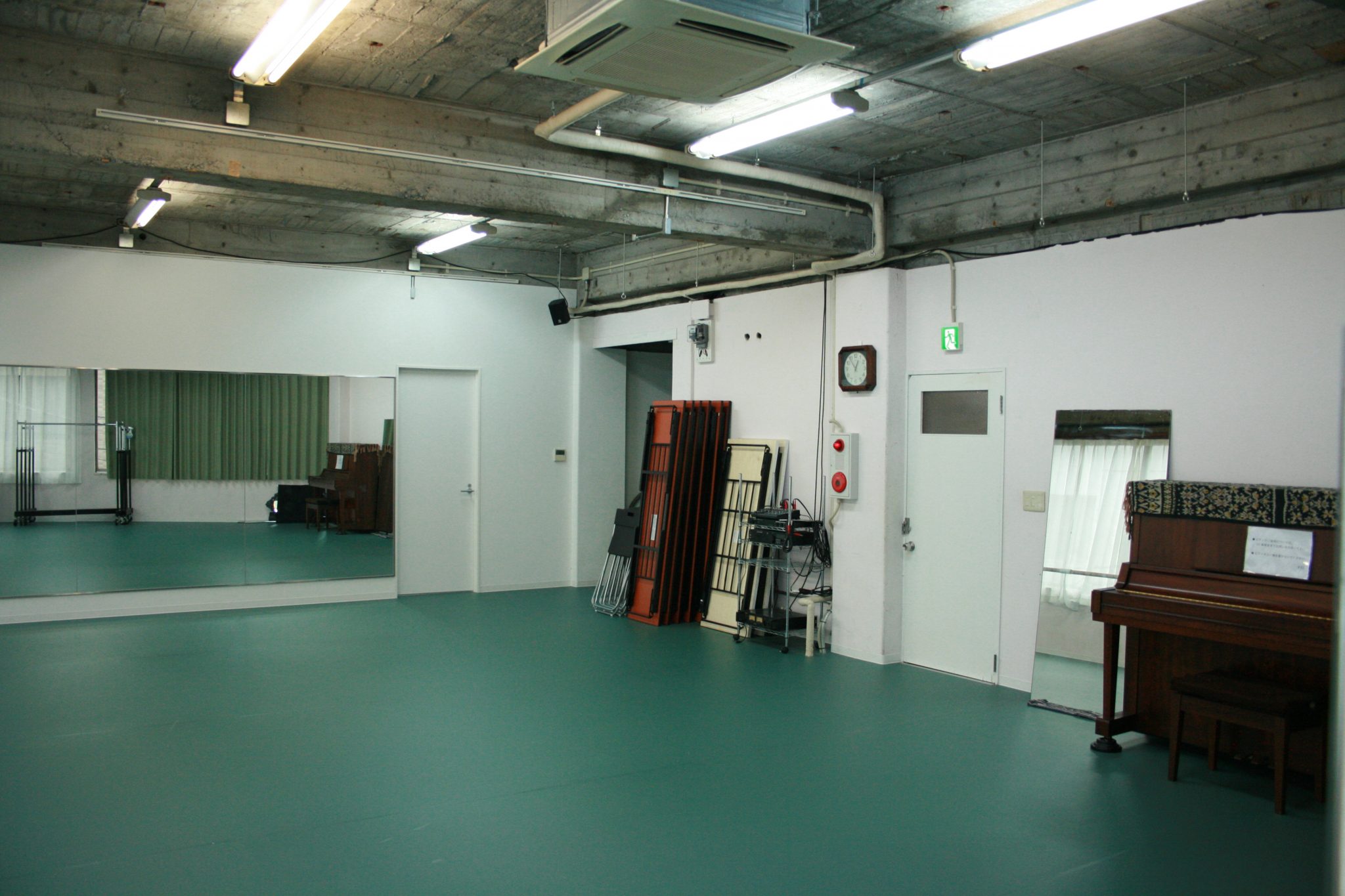
The studio on the second floor. It is as spacious as the stage on the first floor, making it ideal for rehearsals. It can also be used as a dressing room during performances.
Understanding Sarah Kane's "4.48 Psychosis"
-Please tell us about this event.
(Kawaguchi)
Sarah Kane was born in 1971 and was a playwright active in the UK in the 1990s. It will soon be 20 years since her death. Her work was introduced in Japan in the 2000s.
The 1990s, when she wrote her plays, were the era of the Rwandan conflict, the Gulf War, and the Yugoslavian conflict, and Kane made a brilliant debut with a work that inserted the atrocities of British soldiers at that time into her plays. She wrote "4.48 Psychosis" in 1999, but died at the young age of 28 without ever seeing it performed in the theater.
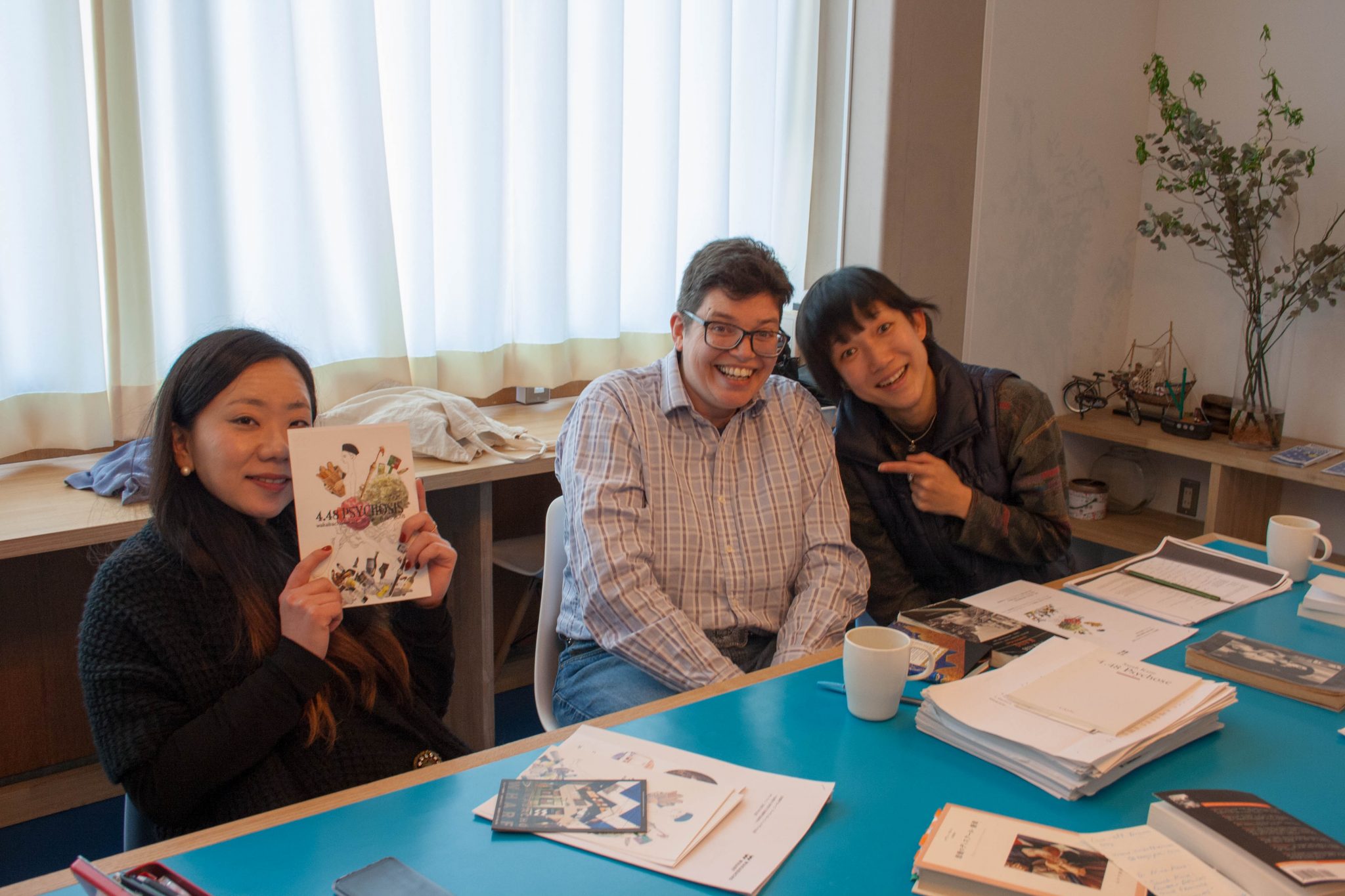
In the shared lounge for guests on the 3rd floor. 12 beds for both men and women, 8 beds for women. Equipped with a shared kitchen, shower, washing machine, free Wi-Fi, etc. It is also registered on a hotel reservation site, so even those who are not related to the theater can stay there.
-When I read the play "4.48 Psychosis," I noticed that there are no character names, and some parts just look like a string of numbers, which seems far removed from the format of a play. I have no idea how it will be performed.
(Kawaguchi)
That's right. It's not an easy play, so I first wanted to understand what was written in the script. Then I wanted to work on the piece. Taking advantage of Wakabacho Wharf's artist-in-residence program, this project will take two years to complete.
The author, Sarah Kane, has even said that she "doesn't know how many actors will appear." As an author who rewrote and published her own staged plays, "4.48 Psychosis" is not the final version. I think that it has many possibilities precisely because it is not the final version.
I am currently working with Nina, a Sarah Kane researcher, to compare the English and Japanese texts and discuss them.
This reading will convey the words of Sarah Kane, with plans to present it in the form of an opera in the winter of 2019.
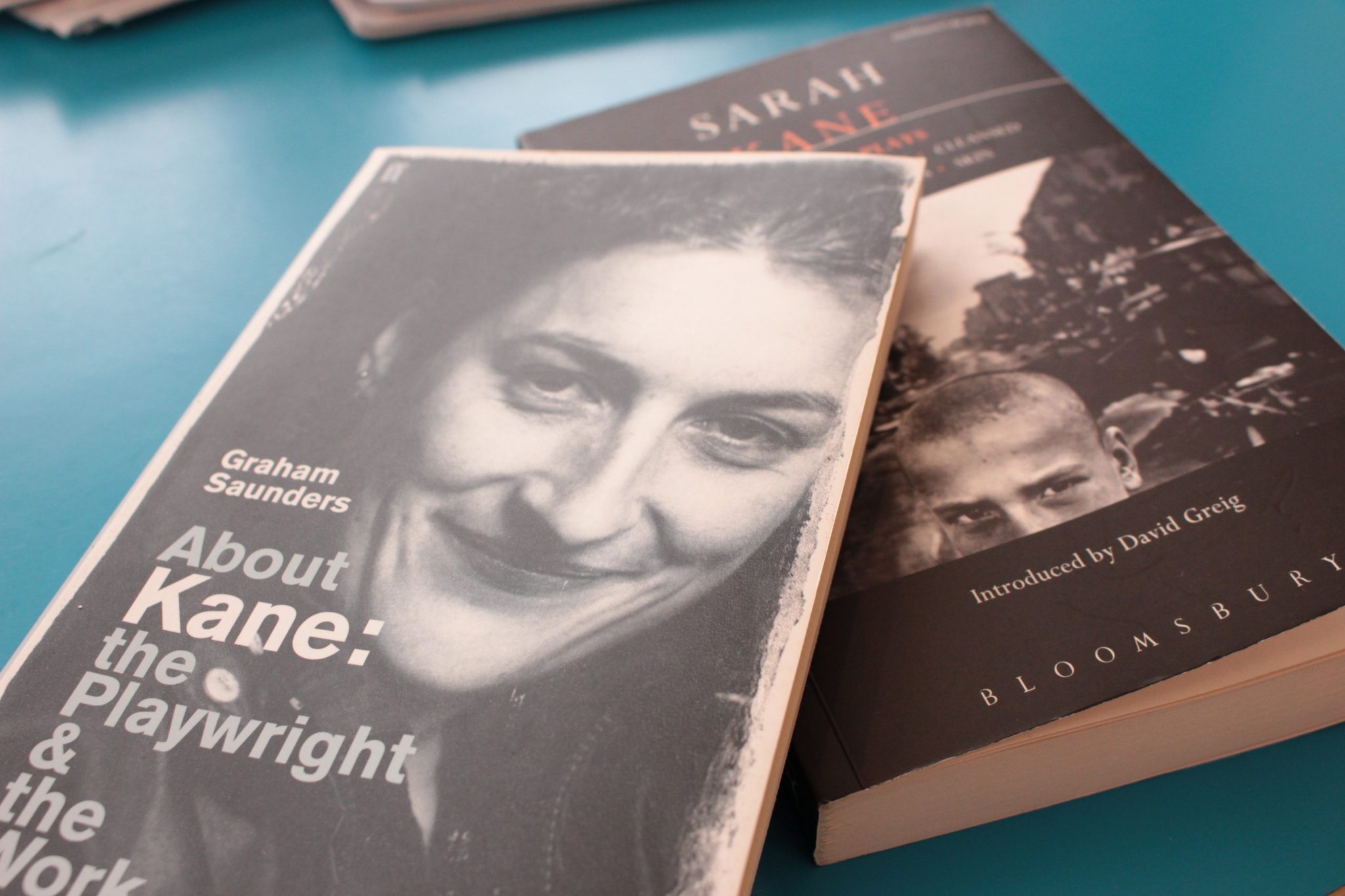
British playwright Sarah Kane was born in Essex in 1971. In 1995, at the age of 23, she made her striking debut with Blasted. She received praise from Harold Pinter and Edward Bond. She published five plays and one short film script. She committed suicide at the age of 28. There is nothing gloomy about her expression on the cover of her collection of plays.
Sarah Kane's work from Yokohama
-How did you meet Nina, the Sarah Kane researcher, and Takimoto, who appears in the film?
(Kawaguchi)
A few years ago, when I was performing a series of Sarah Kane's works, I happened to meet Nina Kane, who was visiting Japan on a trip. I've known Takimoto for about 10 years now. We met when we were both in our training. I don't think there are many people who would be willing to take part in a project like this one (laughs), but Takimoto and I have worked together on experimental projects other than Sarah Kane's works.
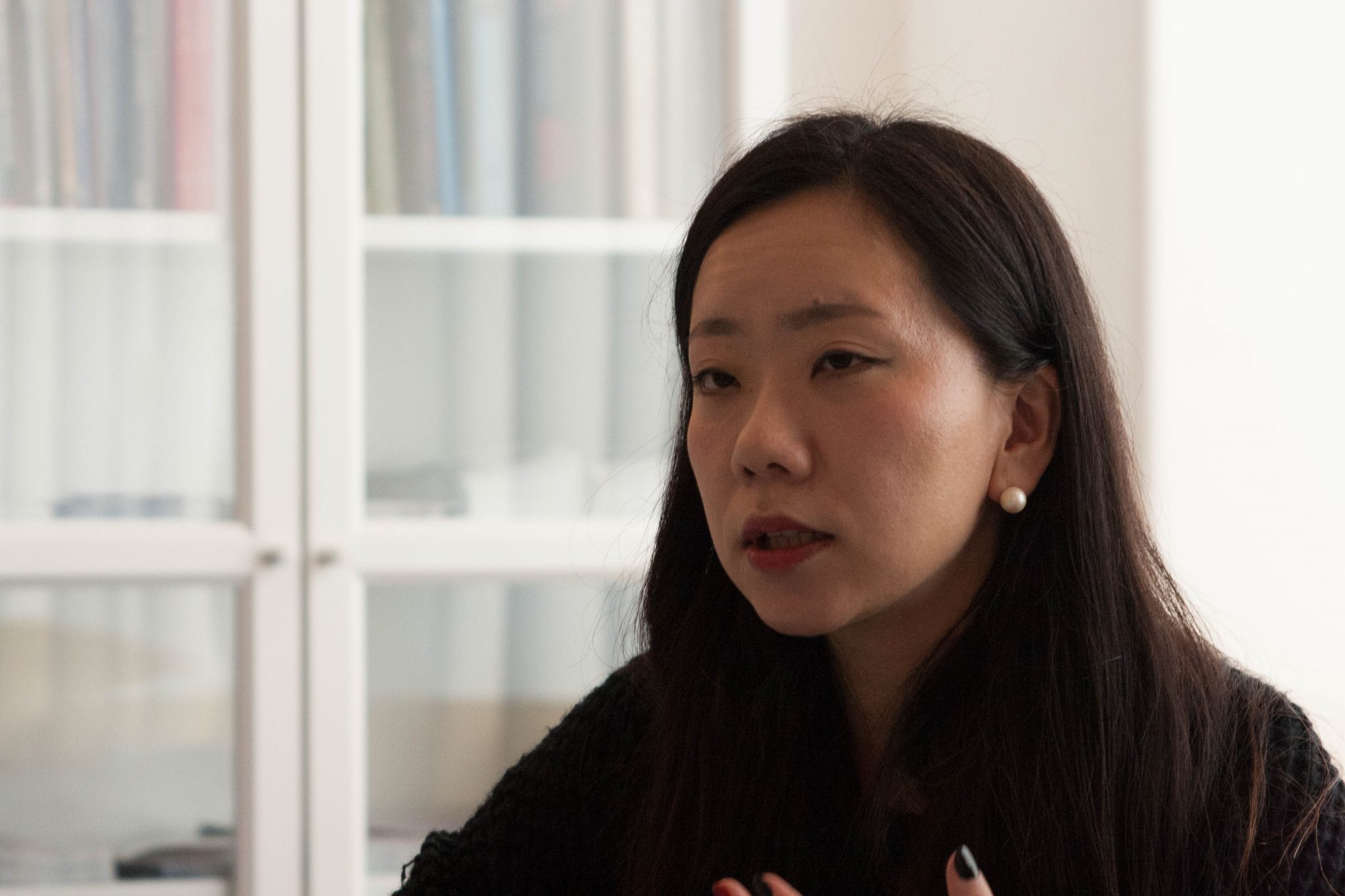
Tomoko Kawaguchi Director. Artistic Associate at Wakabacho Wharf. Born in 1983. Graduated from Tokyo Gakugei University Graduate School. Studied under playwright and director Makoto Sato.
-How do you feel, Nina, about Sarah Kane research being conducted in Japan, far away from the UK?
(Nina)
This is my first time staying in Yokohama, Japan. I participated in a theater salon and was able to interact with local theater people, which was very inspiring. I feel that the various activities and connections that transcend national borders give strength to the place called Yokohama.
When I saw Kawaguchi's performance of Sarah Kane some time ago, I was thrilled to discover that there was someone out there who shared the same sensibilities as me. Sarah Kane is well-known in the UK, but her interpretation is biased and I am not satisfied with it. I would like to bring this project to the UK.
I am currently editing a book on Sarah Kane to be published this fall, and have decided to include my activities at Wakabacho Wharf in the final chapter. If the book is published worldwide, I hope to be able to introduce Yokohama, Kanagawa Prefecture, Japan as an interesting art space.
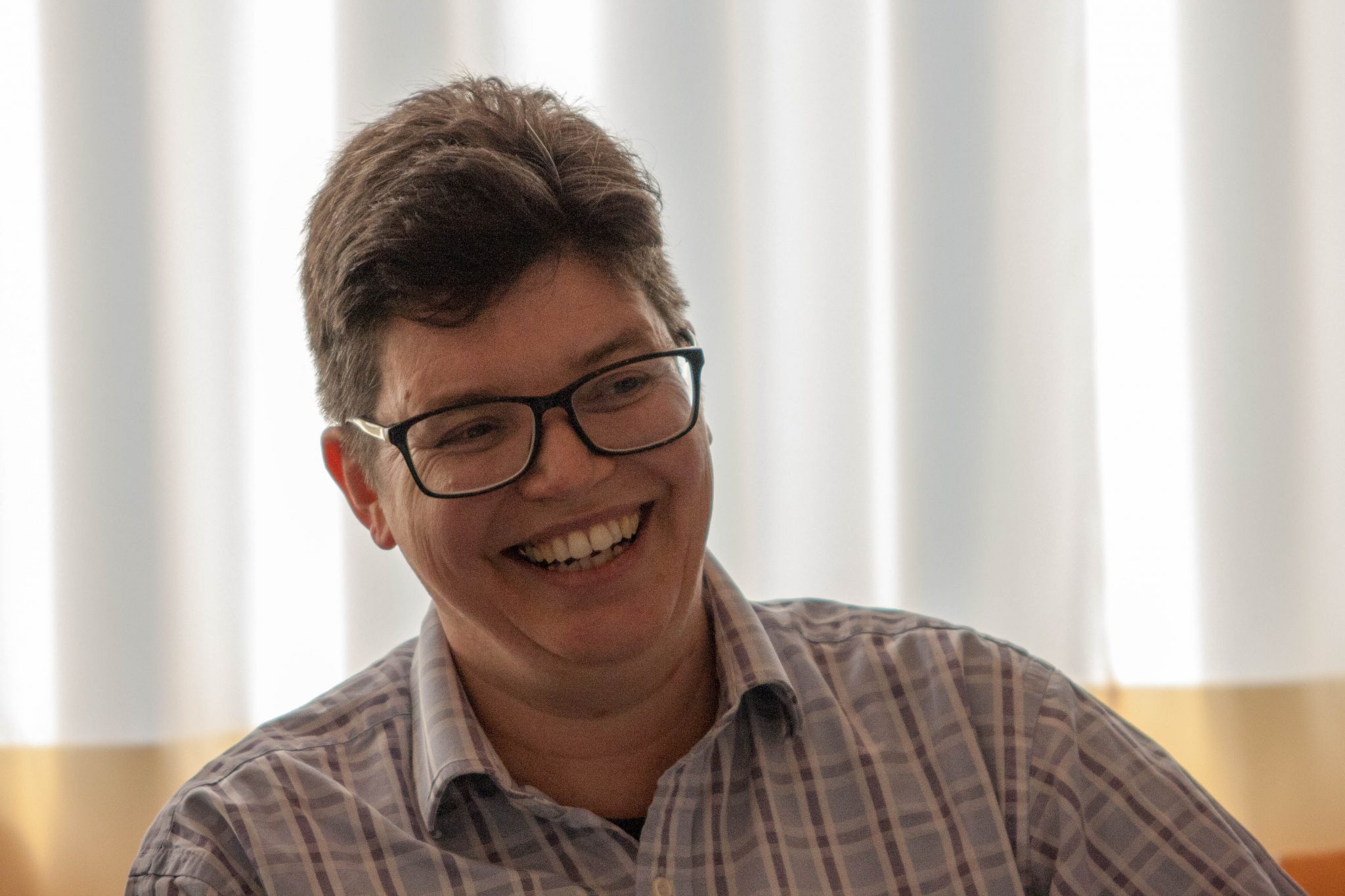
Nina Kane. She has been researching Sarah Kane since 2007. She is the invited artist for this event (UK). She is the artistic director of Cast Off Drama and will be the dramaturge for the text reading of "4.48 Psychosis" to be performed at Wakabacho Wharf on February 7th and 8th.
On February 7th and 8th, you will be performing the difficult work "4.48 Psychosis" as a text reading. It is unclear how many performers there are in this work, and you will be performing it alone. How do you feel about this?
(Takimoto)
Some people may find this place, Wakabacho Wharf, the expression of the play itself, and Sarah Kane's writings scary. I want to convey that it's not scary. I hope to embody this, protected by Nina's love, Kawaguchi's passion, and the love of the local people. That plays, theaters, and Sarah Kane's books are all surprisingly normal things.
I think of myself as a sponge, and this time I'm absorbing the sharp books and sharp planners, the love and passion, the works, the audience, and everyone else. I might bring out what I've accumulated here somewhere else.
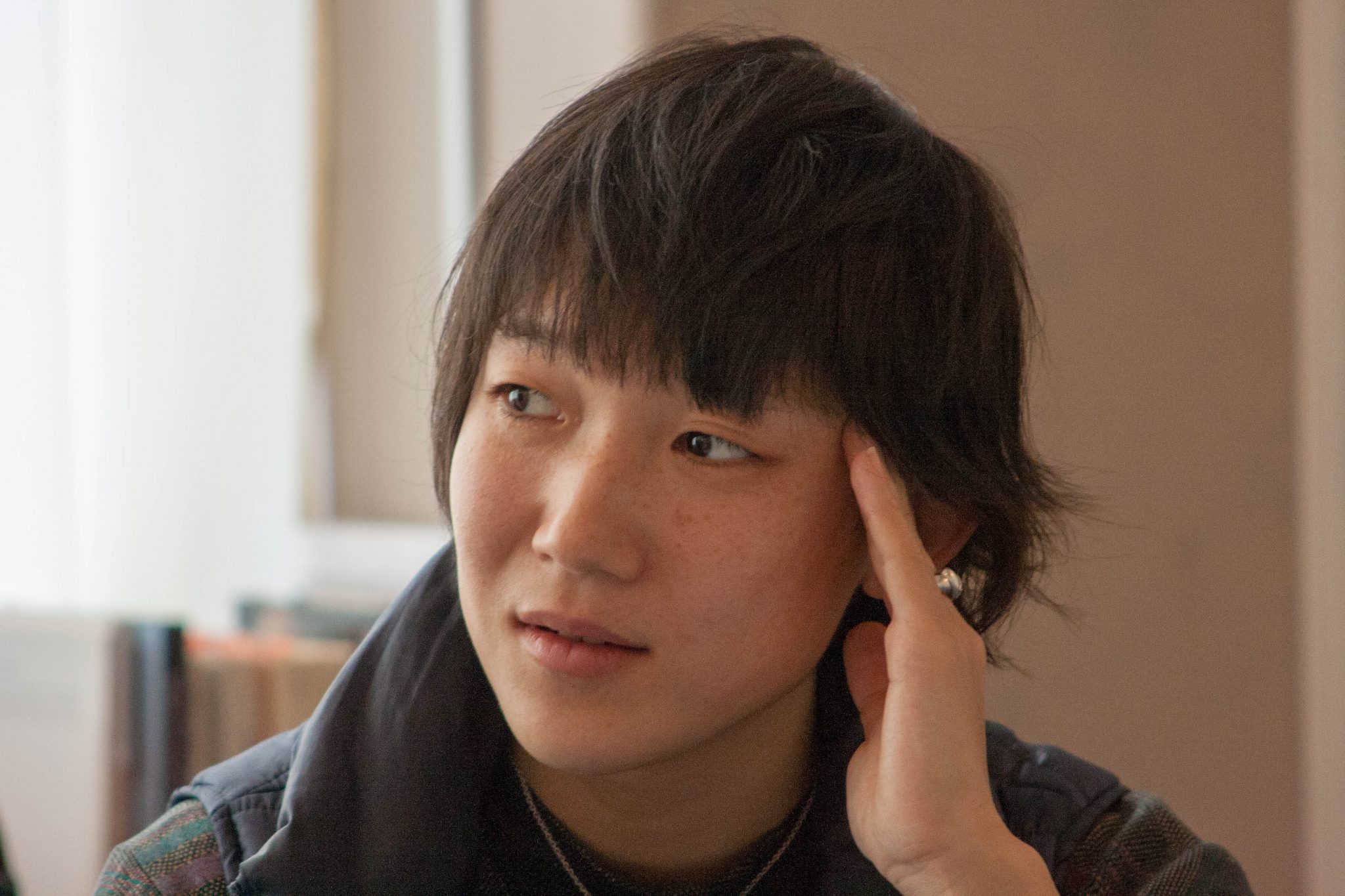
Naoko Takimoto. Actor. A member of the Black Tent Theatre Company. She will be the only performer in the text reading of "4.48 Psychosis" to be performed on February 7th and 8th.
I want to convey the freedom of theater.
-Why did you choose to feature Sarah Kane's work now?
(Kawaguchi)
If I were to set up an event at the Wharf, first of all I wanted to do something unique. It's good to have a variety of theatre. Theatre can be freer, rather than moving towards a uniform world. As we approach the playwright Sarah Kane from various angles, with talks, workshops and text readings, I hope to meet people who will join us in activities and planning at the theatre.
We also want to leave behind the impression that if you come to the Wharf you can see something unique. We want to maintain the uniqueness of being able to see something that isn't available anywhere else.
Sarah Kane, a playwright who is not necessarily well known, is often thought of as difficult! But it's not interesting because it's difficult to understand. In fact, her work is quite junk, there are many access points, and the hurdle is not high. I think it's fine to read her work as if it were a manga.
I hope that this production will be one that can convey the impact of theater, of having seen something terrible, of having humans performing on the spot, of something more interesting than the internet, of coming to the theater and experiencing things that you normally wouldn't find if you were alone, things that you wouldn't be able to absorb within yourself.
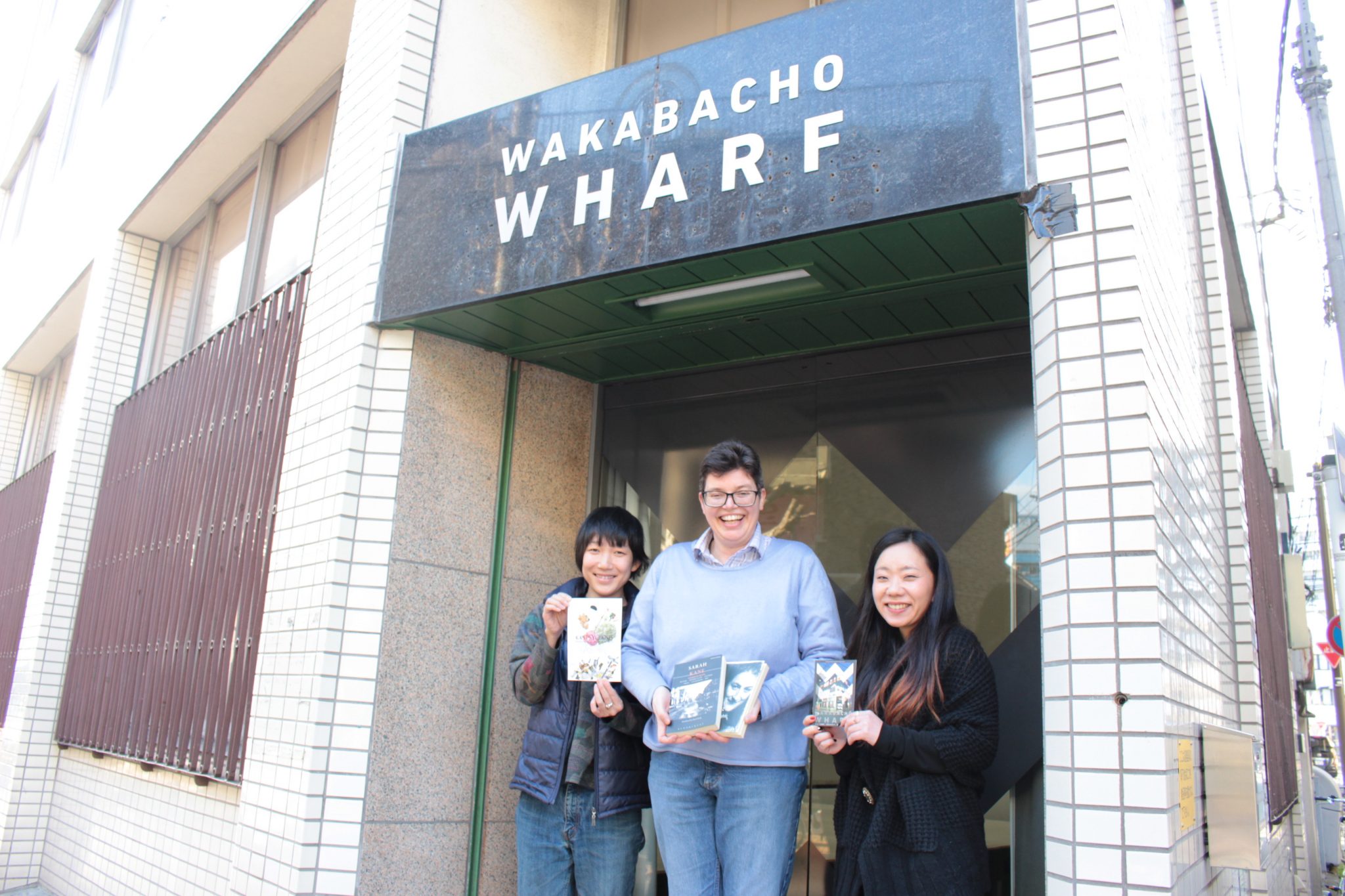
Wakabacho Wharf building. A renovated 50-year-old building that retains the atmosphere of the Showa era.
WAKABACHO WHARF
Address: 3-47-1 Wakabacho, Naka-ku, Yokohama, Kanagawa Prefecture
Telephone number 045-315-6025
FAX number: 045-315-6027
Email: info@wharf.site
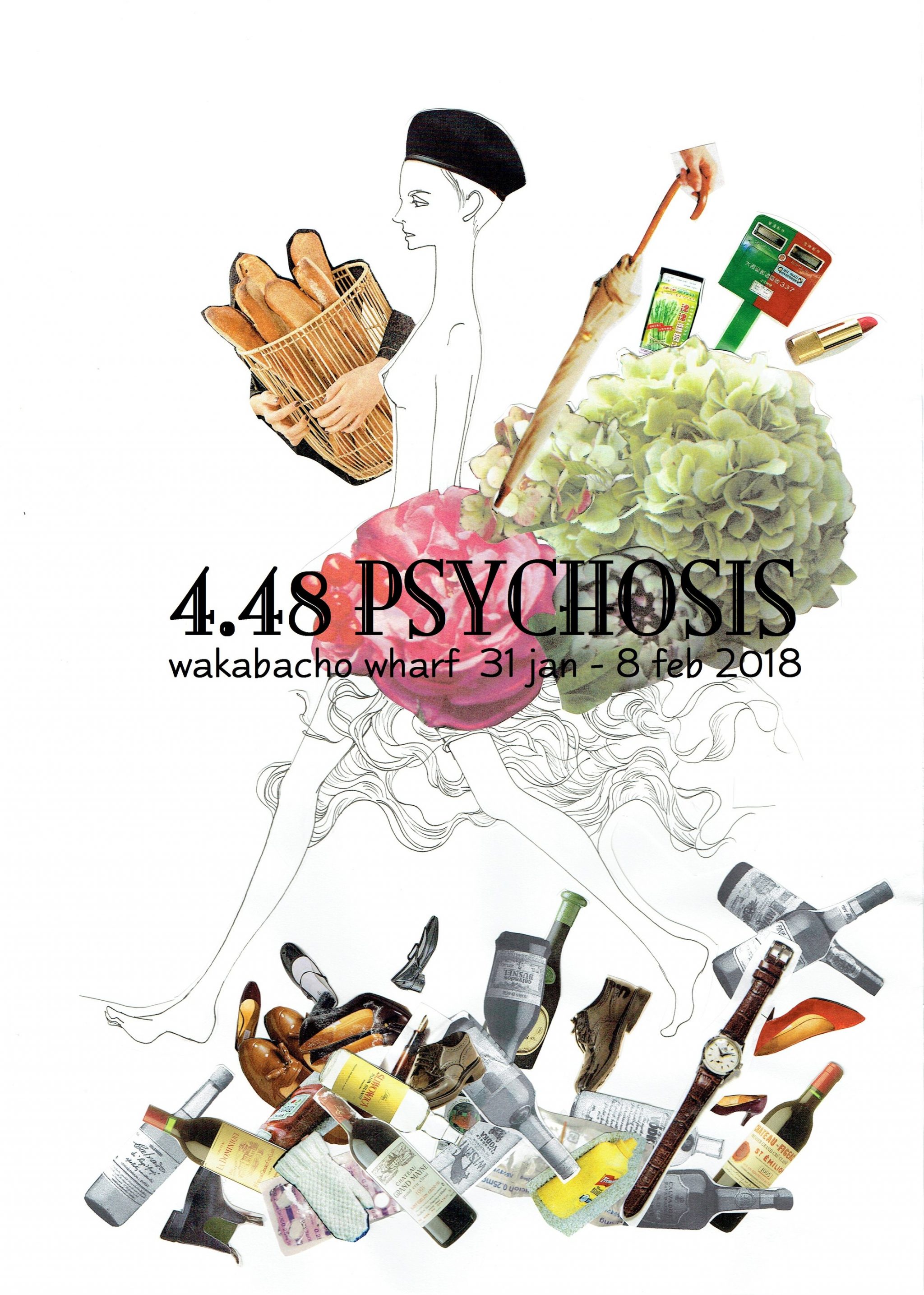
"4.48 PSYCHOSIS"
Period: January 28th (Sun) to February 9th (Fri), 2018
Invited Artist: Nina Kane (Artistic Director of Cast Off Drama/UK)
Planned by: Tomoko Kawaguchi (Wakabacho Wharf Artistic Associate)
◇Program 1 Screening + Talk
A video screening and talk program of “Cleansed” (written by Sarah Kane), which was performed continuously from 2010 to 2013.
January 31 (Wed) 19:00
Screening: "Purification." (2011 Oza Cleansed Project)
Talk Program: Momoyo Niimi (Art Forum Azamino Gender Equality Center Yokohama Kita) & Nina Kane
February 1st (Thu) 19:00
Screening: "Cleansed" (2012 Oza cleansed project)
Talk Program: Hiroyuki Kondo (Shakespeare scholar, Professor at Tokyo Gakugei University / Translator of "The Cleansed") & Nina Kane
◇Program 2: Open Workshop
February 3rd (Sat) 13:00-16:00
Facilitators: Tomoko Kawaguchi & Nina Kane
◇Program 3: Text Reading
February 7th (Wednesday) + February 8th (Thursday) 19:30
"4.48 Psychosis" Text Reading
By: Sarah Kane
Translated by: Takehiko Tanioka
Directed by: Tomoko Kawaguchi
Dramaturg: Nina Kane
Stage director: Tatsuhiko Ito
Sound: Takeshi Shima
Lighting: Yusuke Yokohara
Cast: Naoko Takimoto

